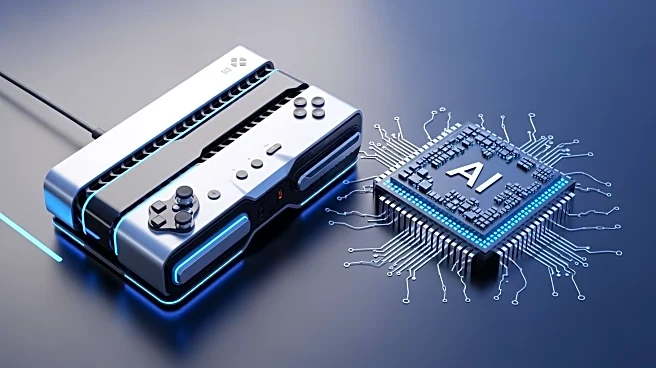What's Happening?
Strauss Zelnick, CEO of Take-Two Interactive, expressed skepticism about the creative capabilities of artificial intelligence in game development during the Paley International Council Summit in Menlo
Park, California. Zelnick acknowledged AI's potential to enhance business efficiency but argued that it lacks the ability to produce hit games due to its inherent limitations in creativity. He described AI as a combination of large datasets and computational models, which are backward-looking, contrasting with the forward-looking nature of creativity. Zelnick also predicted that AI would not reduce employment but rather increase it, drawing parallels to historical shifts in the workforce.
Why It's Important?
Zelnick's comments highlight a critical debate within the gaming industry regarding the role of AI in creative processes. While AI can streamline operations and improve efficiency, its inability to replicate human creativity could limit its impact on game development. This perspective is significant for industry stakeholders, including developers and investors, as it influences strategic decisions about integrating AI technologies. The discussion also touches on broader economic implications, suggesting that AI could lead to job creation rather than displacement, challenging common narratives about automation.
What's Next?
The gaming industry may continue to explore AI's potential, balancing efficiency gains with the need for human creativity. Developers and companies might invest in AI tools that complement rather than replace creative processes. Stakeholders could also monitor employment trends to assess AI's impact on job creation. As AI technologies evolve, ongoing dialogue about their role in creative industries will likely shape future innovations and business strategies.
Beyond the Headlines
Zelnick's remarks raise ethical considerations about the reliance on AI in creative fields. The distinction between efficiency and creativity underscores the importance of preserving human input in artistic endeavors. This debate may influence cultural perceptions of AI and its integration into various industries, prompting discussions about the value of human creativity in an increasingly automated world.








